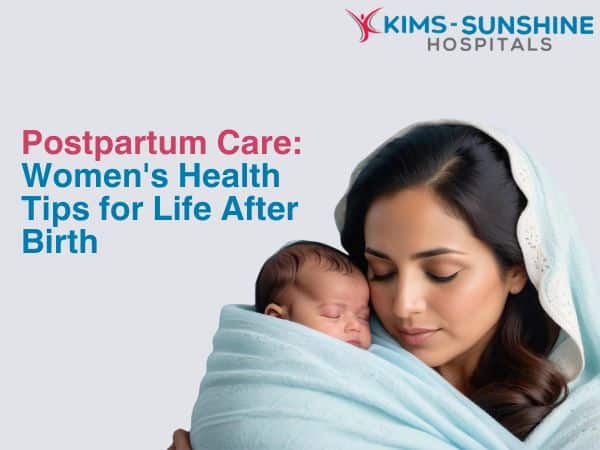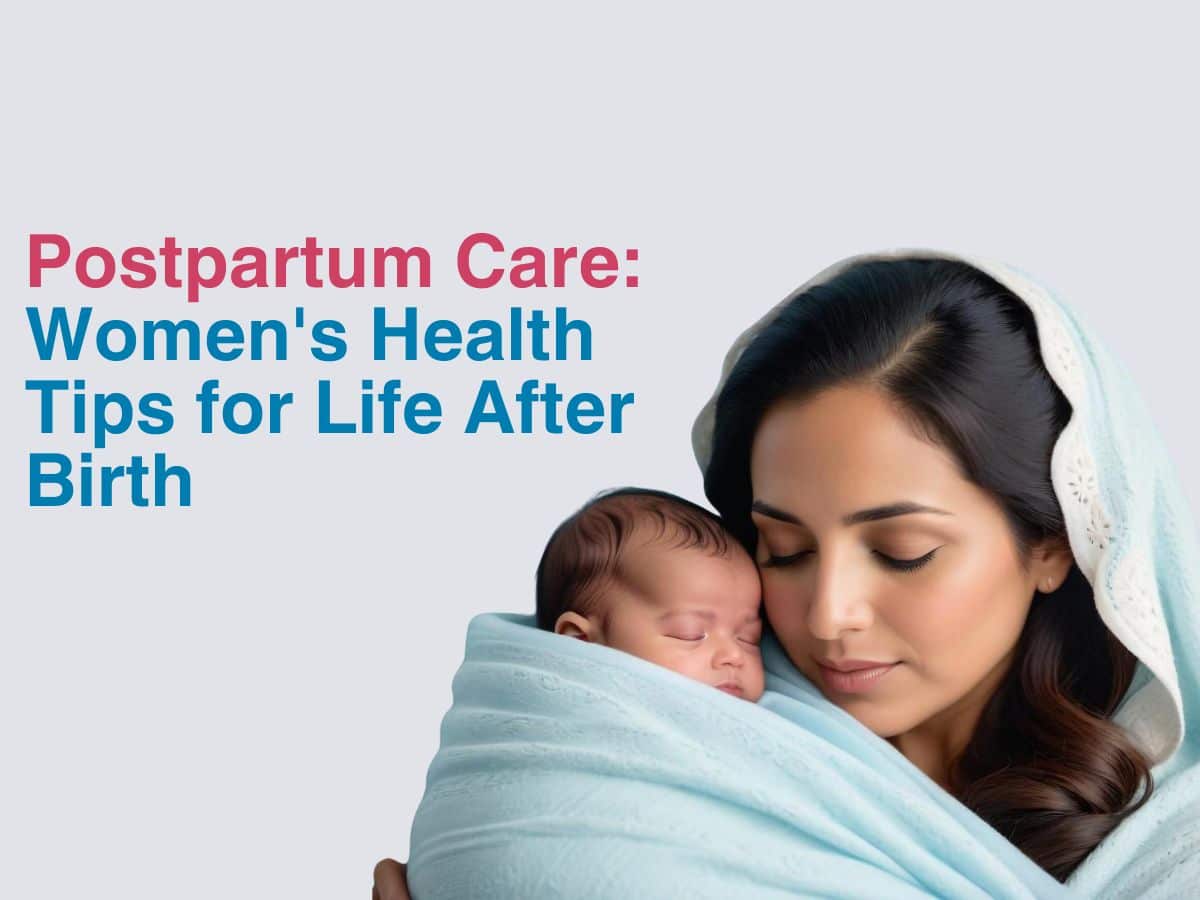
Postpartum Care: Women’s Health Tips for Life After Birth

The term ‘postpartum’ is used to define the time period after a child is born. All the responsibilities of being a mother- feeding, changing the baby, soothing the baby and putting them to sleep hit you hard and fast, but that is to be expected. This is because babies have had an easy life inside your body, with warmth and cosiness guaranteed. This sudden change in their environment can cause them to feel cranky. They cry loudly and we wonder what we did wrong this time because we are not able to get them settled. This repetitive occurrence can do a bad number on the new mother’s health- both physically and mentally. Let us try to understand what a new mother needs this time around.
Postpartum Diet And Nutrition For New Mothers
Your diet needs to be varied and has to fulfil a whole bunch of requirements- food that helps promote healing, provides you with more than sufficient nutrients, helps with lactation- both in quantity and quality aspects and also gives you energy and helps you feel better.
This table should give you a general idea of what to include in your diet:
| Food Type | Nutrient Profile |
|---|---|
| Fresh and lush leafy greens, orange coloured produce- fruits and vegetables, yellow and red coloured produce too! | Vit A |
| Fortified dairy products, supplements | Vit D |
| Plenty of boiled pulses, lentils, meat, egg, soya, paneer | Proteins |
| Dairy | Calcium |
| Dairy, leafy greens, sesame seeds, dal | Iron |
| Cereals, nuts, fresh vegetables | Folic Acid |
| Ghee, sesame oil, dairy | Healthy fats |
| Red rice, brown rice, starchy tubers, oats etc. | Carbohydrates |
Include some gentle spices like turmeric, cumin, carom seeds, long pepper, plenty of garlic and limit sodium intake with less salt consumption. Chuck some dill into a bowl of water and keep sipping on it through the day. It is rich in calcium, and will also help your uterus shrink to its former size. Bone broth is very nutritious, but if you are vegetarian, then ensure you consume dairy and sesame seeds every day. Include Indian staples like methi or fenugreek seeds, millets like ragi, jowar, bajra, nuts, dates, garlic and yoghurt every day. Aim to include soluble fibre rich foods every day. Fruits like guavas, papayas, gooseberries, citrus fruits, apples and melons- can provide you with much-needed antioxidants and nutrients. Healthy fats are also a necessity. Staying hydrated must be a top-priority.
Breastfeeding Tips And Solutions For Postpartum Mothers
Some tips that have always been helpful are as follows
- Plenty of sleep and rest is needed to make milk.
- Eat good amounts of nutritious food- this will help improve the quality of milk produced.
- It is a process- you need to learn to hold the baby comfortably and in a safe position while the baby needs to know to suckle. Both will take time, but you will get there.
- Stressing out is NOT going to help you in any manner.
- The baby needs to be near you for you to be able to breastfeed on demand. So make appropriate sleeping arrangements. Invest in some good quality pillows, equipment or anything else that will make your life easier.
Postpartum Self-Care And Mental Health Strategies
A crying baby can bring out a lot of feelings of inadequacy and helplessness, but you need to know this- crying is the only way they use to communicate with the world around them. So, don’t take it personally. Focus on bonding with your baby, and also, do NOT make postpartum all about the baby alone. You are a new mother, so you deserve some attention too. If someone offers to help you, keep them close, and get some much needed rest.
All the drastic changes can make prioritising mental health a little hard, but it is a crucial aspect. Do not listen to advice which generalises your feelings, and talk to people who will validate how you feel. The approach – ‘all mothers feel like this, so why am I feeling over-sensitive’ just does NOT work. Caring for a newborn can make you feel anxious, depressed or teary- and if these feelings do not go away and affect the quality of your life, don’t hesitate to get help.
Conclusion
Being bombarded with advice can be annoying and can make you question every decision you have ever taken. People around you may switch to giving you advice. Try not to take everything said to heart. A fed baby is best- it does not matter if you choose to breastfeed or give formula. Whatever works for you is the way forward. Remember- being a mother takes effort and patience, and plenty of self-love. Give yourself grace, and know that this day too, shall pass.
Frequently Asked Questions

Dr. Havya Polavarapu
MBBS, MS (Obs & Gyn)
Consultant Obstetrician and Gynaecologist






